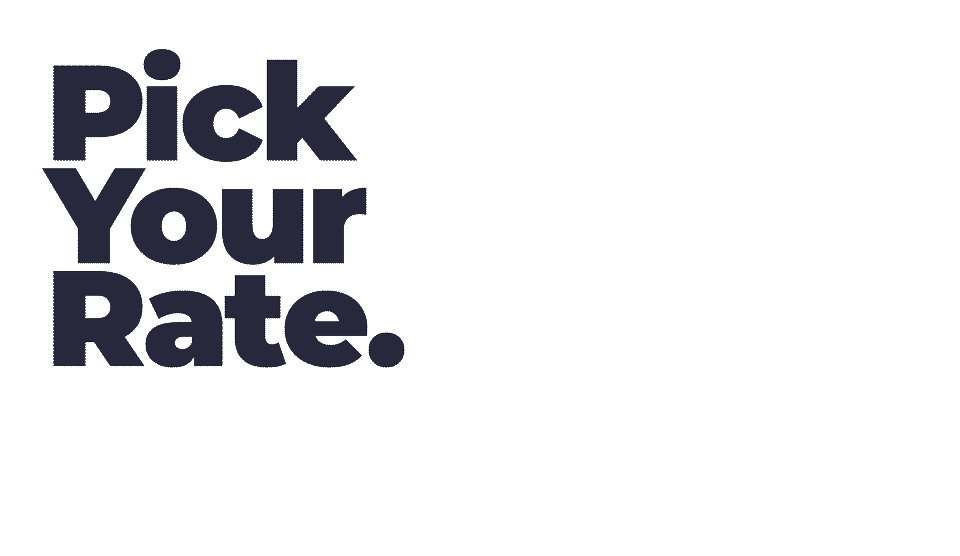
In this article
Key Takeaways
- U.S. household debt has reached $17.8 trillion, including $1 trillion in credit card debt alone.
- Rising costs and record-high interest rates are creating significant financial strain for many homeowners.
- Consolidating high-interest debt through home equity can provide immediate relief by improving cash flow.
- A cash-out refinance helps homeowners reduce monthly payments and lower the overall amount of interest paid.
- Act now — delaying debt consolidation can limit future financial options, so it’s important to secure your financial future as soon as possible.
If there was ever a time for homeowners to feel the pinch, it would be now: rising costs, inflation, and growing debt levels. Managing debt while maintaining positive cash flow has never been harder, whether you’re a first-time homebuyer or a seasoned homeowner. Cost to refinance mortgage debt may be your most important consideration. And with interest rates climbing, pressure is mounting, especially on high-interest debt like credit cards which can keep you paying minimums with no end in sight if you’re not careful. Ever looked at how long it can take to pay off a credit card with minimum monthly payments? Sometimes over 20 years!

Thankfully, homeowners can use their home equity as leverage to consolidate that debt, improve cash flow, and reduce their financial stress. Lots of tools can help you do it, like our refinance cash-out mortgage calculator. Let’s explore how to achieve that in today’s financial environment and discover why it’s important to act now.
Record Debt Levels: The Financial Landscape of Today
U.S. household debt now stands at $17.8 trillion. This is staggering and unprecedented. Not only that, mortgages account for $12 trillion, auto loans at $1.6 trillion, student loans at $1.6 trillion, and credit card debt at $1 trillion. The larger categories aren’t always considered bad debt, but make no mistake: these figures highlight the immense financial strain that many homeowners are facing daily. What’s more shocking is that the average mortgage payment is close to $3,000 per month, and considering that the average U.S. take-home pay is just $4,865, it’s obvious most families feel the need to take action. Housing costs absolutely are tightening the squeeze on household budgets.
Families cannot keep up with their financial obligations and certainly can’t sustain these levels of debt coupled with rising costs. And while homeownership has long been a bastion of stability, rising costs still pose challenges, particularly for those carrying large amounts of high-interest debt. And the facts are clear: Americans are combating inflation with more and more debt. So, the question on many homeowners’ minds is fairly straightforward: How can I maintain financial security while managing these rising costs?
Rising Costs and Financial Pressure: What’s Driving the Squeeze?
Several factors place increased financial strain on everyone. For one, the cost of oil has surged over 40% in a short time. Mortgage rates have risen sharply, to a high of 7.5%, and credit card interest rates are hovering around a record 25%. All of these costs add up and ripple through the economy, making positive cash flow and keeping up with debt payments an elusive task.
Borrowing more debt is often a temporary solution, especially in a high-inflation environment. But everyone knows it is not a viable long-term plan. As interest rates soar, taking out more debt only prolongs the inevitable and sets homeowners up for future problems. For those looking to regain control of their financial situation, home equity can provide much-needed relief in the cash flow department.
Why Debt Consolidation is the Solution
At the core of the issue for many homeowners is cash flow. All of these rising costs can prompt a crisis, which leaves little room beyond the essentials. If your average take-home pay is $4,800 and your mortgage is $2,000 or $3,000, you don’t have very much wiggle room and virtually no safety net. You’re treading water because your debt load probably exceeds 40% of your income. This can quickly lead to a “sinking ship” scenario, where you are forced to take on more debt to service existing debt, and it exponentially compounds until you are completely underwater.
Debt consolidation can offer an immediate solution to this problem, particularly through home equity or a cash-out refinance. Your home equity is the money you have paid toward your home and the portion you own outright. You can find out exactly how much that might be using something like a refinance cash out mortgage calculator. Consolidating debt with your home equity can help you regain control and provide some much-needed breathing room.
Debt Consolidation Through Equity: How It Works
Home equity is the value of your home that you’ve paid off, and it can help homeowners improve their financial situation. A cash-out refinance allows you to tap into this money, and you can use it to pay off high-interest credit card debt and replace it with a single payment tied to your mortgage.
Some credit cards (looking at you, AmEx) can carry interest rates as high as 30%! By contrast, the interest on a cash-out refinance is typically much lower, so you’re essentially trading a higher interest rate for another, lower one. You will pay much less money over time this way and generate a lot of savings. Consolidating debt in this way allows homeowners to pay less overall, which improves your monthly cash flow and frees up cash for other expenses.
Cash-out refinances also allow you to skip two months of payments. This break can offer a lifeline for those struggling to save and make ends meet. Consider this a valuable potential tool in the fight against debt. To understand how much you can save by consolidating, use our refinance cash out mortgage calculator. This allows you to see how much equity you can access and how much you can potentially save by consolidating.
The Unsustainability of the Current Situation
Not only are rising debt levels, inflation, and costs difficult to manage, they are also unsustainable. Borrowing more money to cover existing debt simply adds to the existing problem, and interest rates make it even harder to stay ahead. The longer homeowners wait to address their debt, the fewer options they may have to resolve the issue.
Using a refinance cash out mortgage calculator can help you get an idea of what resolving the issue will look like. Sometimes visualizing the numbers can help you make a decision you otherwise wouldn’t.
The thing about debt is that the more you have, the harder it is to get approved for relief solutions like refinances. So it’s important to act while you can instead of delaying until things are worse.
Steps to Secure Your Financial Future
It’s time to consider consolidating your debt through home equity if you’re struggling. The first step is to consult with a mortgage pro who can help you look at your options and walk you through the process. You can calculate the savings using our refinance cash out mortgage calculator and understand what you might get from consolidating. This will help you determine the best course of action for your financial situation.
At the Moreira Team, we specialize in helping homeowners work through debt consolidation by using their home equity. We offer a range of refi options that can help you regain control of your finances and have lasting financial relief. Consult with a Moreira Team mortgage professional and use our refinance cash out mortgage calculator today!




